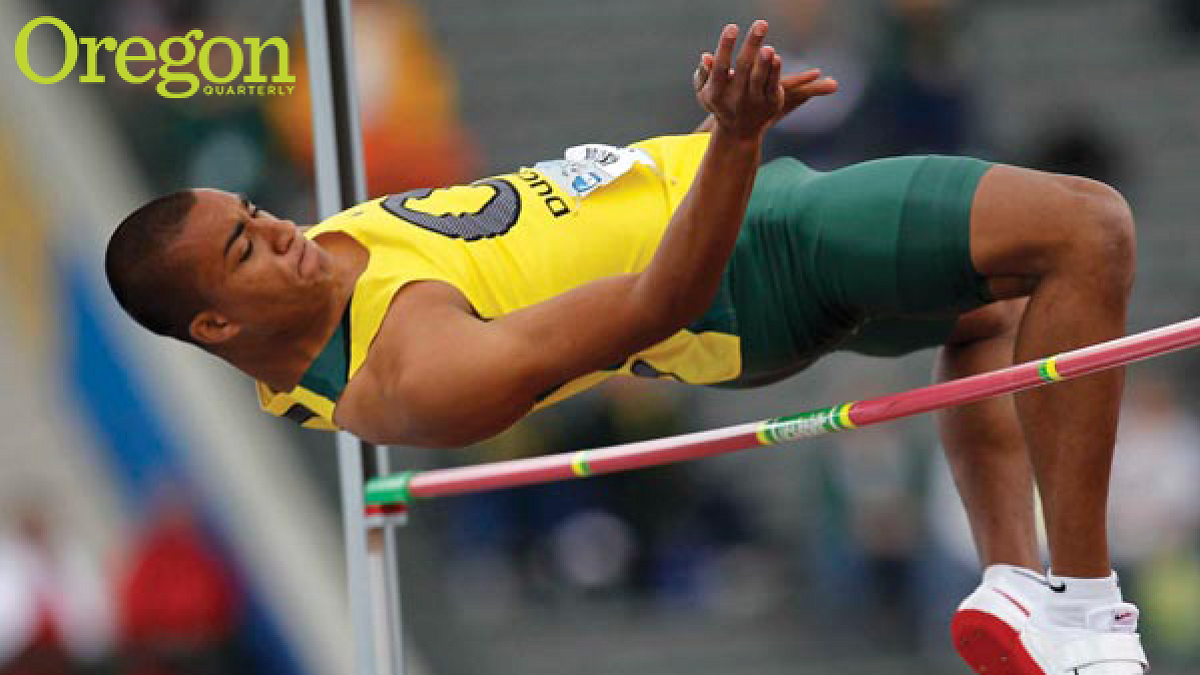For some, athletic competition is a somewhat cold calculus of distance and time, training and technique; but for Olympian runner Kenny Moore '66, MFA '72, competition at its most elevated levels also enters the realm of the tribal and the global, the archetypal and the transcendent. Track Town, USA—Hayward Field: America's Crown Jewel of Track and Field (Richard Clarkson and Associates, 2010) by Kenny Moore, Brian Lanker, and Rich Clarkson, tells the story of Oregon track and field with Moore's text and an astounding collection of images—from Hayward Field's earliest days through its most storied moments and up to athletes competing there today. The book's first chapter is titled "That Hayward Feeling," which begins with the following excerpt.
There is a reason Hayward Field in Eugene, Oregon, is the great American track and field magnet. There is a reason champions have come here for a century to battle it out, driven by deafening crowds. There is a reason Track Town, USA hungers to see the closest, most brutal contests.
Part of it is the impossible human spectrum that is track and field. Hayward roars on nine different body types: explosive, 300-pound weight men, touchy, prideful, bullet-body sprinters, fashion-model high jumpers, gymnast-god pole vaulters, cat-flexible hurdlers, regally proportioned milers, blocky, whippy javelin and hammer throwers, and bouncing-stork triple jumpers, hurling themselves distances that crack bones. Hayward especially cheers ectomorphic distance runners, even though they look “skinny to the point of disfigurement.” When your mother tells you that, you know you’re ready to race.
Hayward Field has always been awestruck by things 10 standard deviations from humble normal. Of course that doesn’t explain why track grew ever more beloved here and not elsewhere. But who can speak for elsewhere? Hayward speaks for itself. It became track’s Carnegie Hall by pursuing a powerful moral purpose. Hayward’s sustaining faith is not a spirit so much as a feeling, a recognition arising from our deepest atavistic nature. Since we are all descended from ancestors who survived by running and throwing, we cannot turn away from a tight race or a looming, whistling hammer. Hayward embraces everything we have evolved to understand as glorious.
Part of the Hayward feeling is knowing that there is no higher calling than to be of service, rigorous, sacrificial service. The runner going for a record is one with the soldier on the beaches of Normandy, driving on, under orders from the stamping, thundering greater good.
Part of the Hayward feeling is understanding, with the ancient Greeks, that there is more honor in outrunning a man than killing him. Competition is the Olympian’s answer to war. Giants lifting pilsners an hour after being screaming enemies in the ring is the meaning of civilization.


